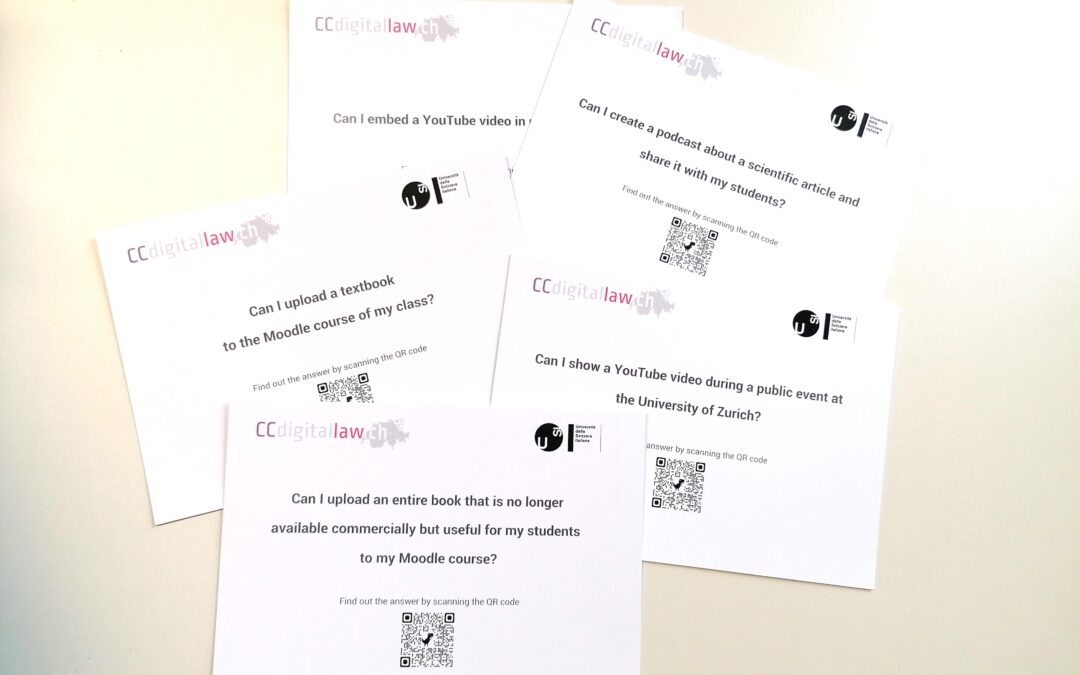Welcome to the Competence Center in Digital Law
We support Swiss Higher Education Institutions (students, academic and administrative staff) in dealing with legal questions related to the digitalization process and the use of new media and technologies.
DMLawTool
DMLawTool guides researchers through the most relevant legal aspects of research data management and proposes possible solution approaches to copyright and data protection issues. It has been developed by the Università della Svizzera italiana (USI) in collaboration with the University of Neuchâtel (UNINE) within the P-5 programme “Scientific information” of swissuniversities. More detailed information about the tool can be found here. To access the tool, use the button below.
Showcases
News

07-08.02.2024 – Ccdigitallaw at the Eduhub days 2024
During the Eduhub days 2024 we provide cards with questions related to copyright in learning spaces. Here you can find the answers: 1. Can I show a YouTube video during a public event at the University of Zurich? No. While YouTube is freely accessible, videos without...